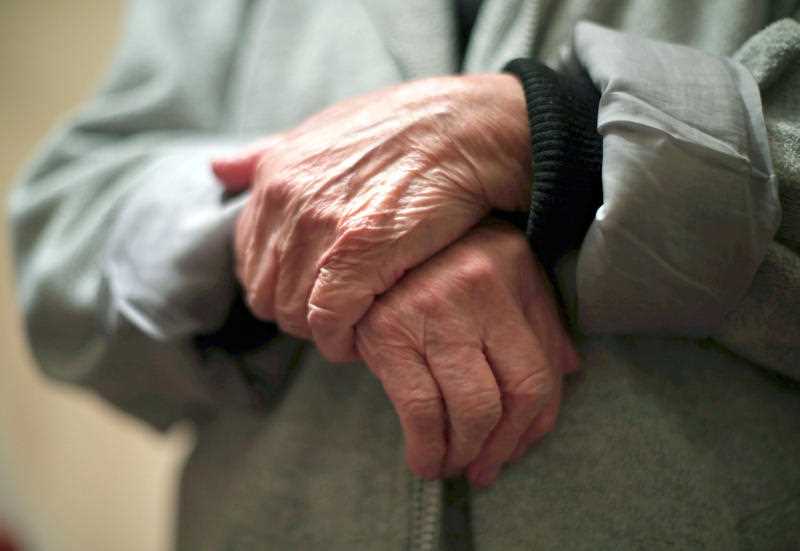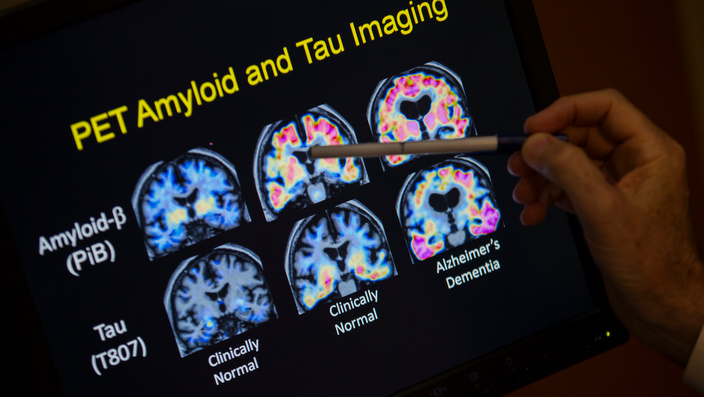With dementia cases set to soar, the World Health Organisation has presented its first-ever guidelines for reducing the risk, including healthy eating, regular exercise and cutting out tobacco use.
The number of people living with dementia is expected to explode from approximately 50 million today to 152 million by 2050, the WHO said in its report.
"In the next 30 years, the number of people with dementia is expected to triple," WHO Director-General Tedros Adhanom Ghebreyesus said in a statement, stressing that "we need to do everything we can to reduce our risk of dementia."

Dementia affects nearly 500,000 Australians. Source: AAP
Dementia is the second leading cause of death of Australians overall, and the leading cause of death for Australian women.
Nearly half a million Australians are living with Dementia.
The UN agency said that a healthy lifestyle appeared to help keep cognitive decline at bay.
The scientific evidence gathered to draw up the guidelines, Tedros said, "confirm what we have suspected for some time, that what is good for our heart, is also good for our brain."
Dementia is caused by a variety of brain illnesses that affect memory, thinking, behaviour and the ability to perform everyday activities.
About 5 to 8 per cent of people over the age of 60 are afflicted with Alzheimer's disease and other forms for dementia.
The disease inflicts a heavy economic burden on societies as a whole, with the cost of caring for people with dementia expected to rise from an estimated $US818 billion in 2015 to $US2 trillion by 2030, WHO said.
The largest increase in cases over the next three decades will be seen in low- and middle-income countries where overall population growth is the highest, WHO said, warning that many healthcare systems will face significant challenges.

Scan results pinpointing any potential issues. Source: AAP
WHO said there were a number of non-modifiable risk factors for dementia such as age and family history.
Associate Professor Michael Woodward is Dementia Australia's honorary medical advisor told SBS News the the guidelines mark a first in offering advice.
"This is the first time the W-H-O have put it into international guidelines and also offered resources to facilitate that in other countries, perhaps those that have a less robust health system than we have in Australia," he said.
"So yes, it is a new approach, but it uses information that has been around for some time."
Not inevitable
But it stressed that "while age is the strongest known risk factor for cognitive decline, dementia is not a natural or inevitable consequence of ageing."
At the same time, "we do know that there are some risk factor for dementia that we can actually modify," Dr Neerja Chowdhary of WHO's mental health and substance abuse division, told reporters in Geneva.
The agency said its new recommendations could provide the key to delaying or slowing cognitive decline or dementia.
The guidelines point to a range of lifestyle choices that appear to heighten the risk, including physical inactivity, tobacco use, unhealthy diets and harmful alcohol use.
Medical conditions like hypertension, diabetes, high cholesterol, obesity and depression are also associated with increased risk of developing dementia, WHO said.
The WHO guidelines recommend that adults adopt a balanced, Mediterranean-style diet, quit smoking, avoid drinking too much alcohol and watch their weight.
They also suggest that cognitive training can help stimulate the brain and ward off dementia.
And they hint that an active social life could also be beneficial, pointing to studies showing that social disengagement can place older individuals at increased risk of cognitive impairment.
'Massive impact'
Professor Woodward says just being able to slow things down using the preventative measures put forward by the WHO could make a massive difference:
"Even if we can delay the onset of dementia by about five years, we'll reduce the total number by about 50 per cent which is a massive impact on what might we see as a tsunami of dementia coming upon us in the future.
"We worry about things like global warming, all very important; we worry about terrorism, again very important - but we need to be aware that dementia is soon going to be the main cause of death in our society.
"It's going to cause incredible cost in Australia - in Australia's it's already close to $10 billion a year and that's going up rapidly. So we need to be concerned about dementia and do what we can about it now."


